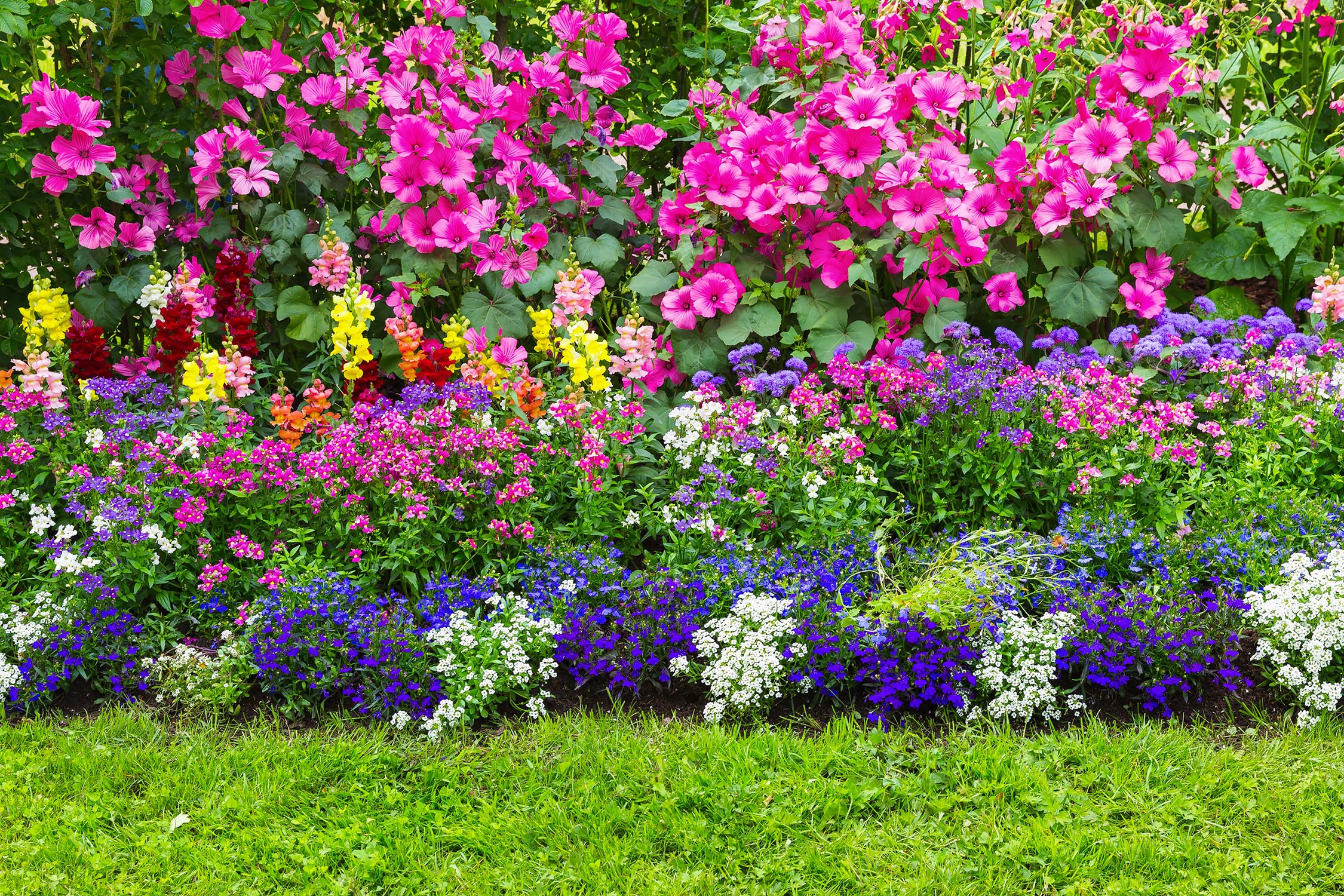It is a lovely September day as I am writing this post out on my deck, and I noticed that while outside, I have been taking a few minutes to look and listen around me… to observe the colors, the bright sunshine, the chirping birds, and the warm, pleasant air. Going outside, like many other actions we perform on a regular basis, can easily be taken for granted. It’s important not to let the rush of our daily lives block us from being mindful of our surroundings, and to remember that once in awhile, it’s quite beneficial to “stop and smell the roses.”

Figure 1-1. Petty’s. Flower Bed
I’d like to discuss mindfulness today… not only what it is, but also how you can easily engage in it, and why it can have so much impact. You’ve probably heard of mindfulness before… it seems to be something that we are all aware of, yet most of us don’t do nearly enough. Even I would benefit doing a bit more mindfulness each day! Maybe you aren’t quite sure what is meant by mindfulness, and that is okay! Essentially, mindfulness is the state of being fully aware of your surroundings… not only externally, such as the sounds and sights, but also internally. It means that you are aware of your body and thoughts, and that you have a sense of control in all situations, even the most intimidating.
There are a number of reasons to engage mindfulness, and in these times of great uncertainty and anxiety, the benefits make mindful practices even more important. Mindfulness has been scientifically shown to reduce anxiety and even depression, both of which are quite common among people in our age group. In fact, mindfulness is so powerful that when combined with cognitive behavioral therapy, can treat depression just as well as an anti-depressant medication could. Mindfulness can also help increase our focus/productivity, and allows us to become more aware of social biases we may have. I also think that it is quite worthy to mention that mindfulness has also been proven to increase self-worth and significantly reduce bodily discontent, something from which many people our age suffer. Overall, mindfulness makes us happier, more productive, and reminds us to love ourselves too!
Figure 1-2. UCSC CAPS. Self-Love
Remember how I mentioned that it only takes one minute a day to start implementing self-care into your daily routine? Mindfulness can be your one minute, and there are so many different ways to go about it. Deep breathing is at the core of mindfulness, and, as you might’ve guessed, the three breath technique from the previous post is a mindful practice! You should count up while breathing in, and then count again while breathing out – there is no wrong way to do this – pick a length of time for the inhale and exhale process that feels most comfortable to you! Only focus on your breathing, and with each breath you should feel more relaxed and aware.
This isn’t the only way to be mindful – next time you eat a meal or have a snack, really consider how it looks, tastes, and smells, and only focus on that – this will train your brain to be more aware of your external surroundings, and this awareness can be transferred to paying attention to your own body. You can apply similar sensory practices as well, next time you are walking to a class, waiting at a red light, or anywhere else you have a moment to yourself. These tend to be shorter exercises, however – there are other ways to engage in mindfulness as well that I’d recommend when you begin increasing your daily self-care routine to around five minutes a day or so. These techniques include meditation, body “scans,” going for a mindful walk, and more. In my next post, I’ll be discussing these longer practices in relation to relaxation, mindfulness, and stress reduction, so stay tuned! These practices are integral to your health, and are at the true heart of self-care!
I really enjoyed your post, today! I actually did a report on mindfulness in high school, and like, you said, it has various benefits for our overall health and body. Today, it seems like mindfulness is on an uprise, with more people implementing this practice into their daily lives. It takes a lot of practice to get into a mindful state, focusing on only your surroundings and not worrying about what you have to do in five minutes. Everyday, my mom and my aunt wake up and practice mindfulness through yoga. Although I am not the best or consistent with it, I am trying to learn how to be more mindful.
I find your posts so helpful! Especially as someone who stresses very easily. These times are definitely not helping me, or my mental health. However, I enjoy reading your posts on how I can help myself. I feel like I am never fully aware of my surroundings. I never just sit and think about what’s going on. I think I’m going to need to start focusing on mindfulness more. If it helps with as much as you say it does, then I need to start doing that! I just find it hard to sit and focus on my surroundings without necessarily doing something, or talking with someone. I might have to start small. I’ll try focusing on what I eat and actually pay attention to how it smells, looks, and tastes. I think it’s a great way to start. I’m looking forward to your next post!
I absolutely loved this post. In my own life I am often moving so fast that I forget to stop and smell the roses myself. I have been trying to take more time to be mindful of what I do each day and how it effects me! I really enjoy how you have been encouraging us to be more mindful! I cannot wait for your post next week